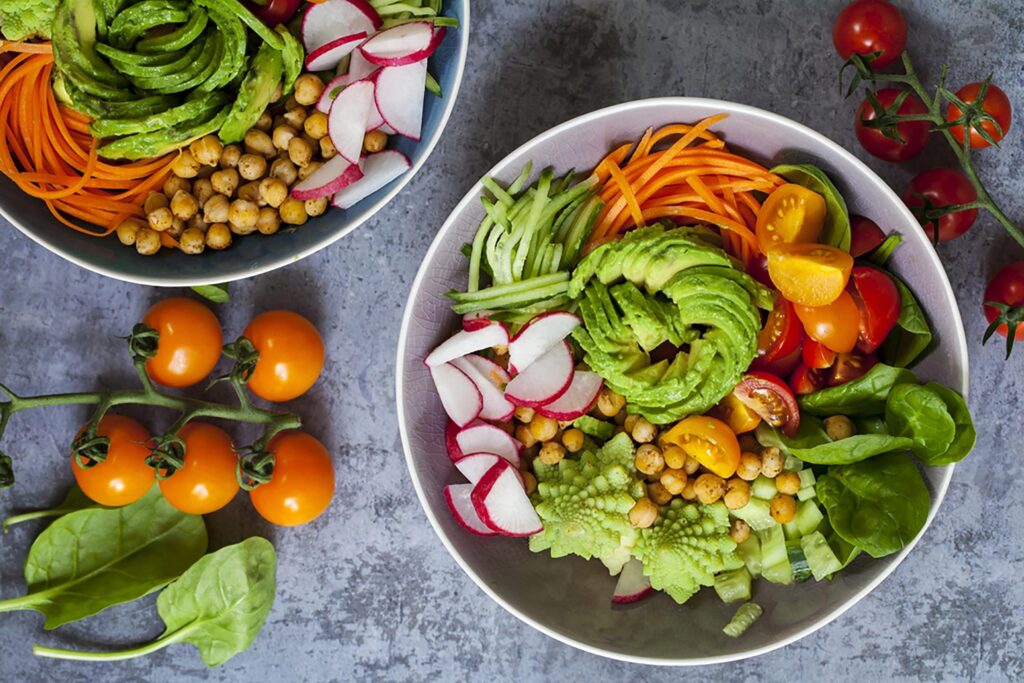Top Vegetables for Weight Loss

Unleashing the Power of Vegetables for Weight Loss
Looking to shed some pounds? Look no further than your local farmers market! Adding plant based to your diet is a cornerstone of sustainable weight loss. Packed with fiber, vitamins, and minerals, they keep you feeling full, provide essential nutrients, and help your body function optimally. But not all vegetables are created equal when it comes to weight loss. Here's a breakdown of the top contenders:
1. Leafy Greens: Spinach, kale, collard greens, and romaine lettuce are nutritional powerhouses. Low in calories and rich in fiber, they help curb cravings and promote a feeling of fullness. They are also excellent sources of vitamins A, C, K, and folate, which support metabolism and overall health.
2. Cruciferous Vegetables: Broccoli, cauliflower, Brussels sprouts, and cabbage are known for their low calorie count and high fiber content. They also contain compounds that may aid in detoxification and reduce inflammation, further supporting weight loss efforts.
3. Root Vegetables: Sweet potatoes, carrots, beets, and turnips are packed with complex carbohydrates, providing sustained energy and preventing blood sugar spikes. They are also good sources of vitamins A, C, and potassium, which contribute to overall well-being.
4. Peppers: Bell peppers, chili peppers, and jalapenos are versatile and flavorful. They are low in calories and rich in vitamin C, which is an antioxidant that supports a healthy immune system and may boost metabolism.
5. Asparagus: This springtime delicacy is a low-calorie, high-fiber vegetable that is rich in vitamins K, C, and B vitamins. It also contains folate, which plays a role in cell growth and repair, potentially contributing to weight management.
Beyond the Basics:
* Preparation matters: Steaming, grilling, or roasting vegetables preserves nutrients and minimizes added calories.
* Portion control: While vegetables are generally healthy, consuming excessive amounts can still contribute to calorie intake.
* Variety is key: Including a variety of plant based in your diet provides a wider range of nutrients and helps prevent boredom.
Remember: Weight loss is a journey, and incorporating plant based into your diet is just one piece of the puzzle. Combining a healthy diet with regular exercise and a sustainable lifestyle is crucial for achieving lasting results.
The Healthiest Vegetables: A Guide to Fueling Your Body and Mind
Maintaining a healthy lifestyle entails making conscious choices, and fueling your body with nutrient-rich foods is paramount. Plant Based, nature’s vibrant offerings, play a pivotal role in supporting overall well-being. This comprehensive guide will delve into the world of vegetables, highlighting the best options for maintaining a healthy weight, boosting immunity, and promoting longevity.
Cruciferous Plant Based: The Cancer-Fighting Force
Cruciferous Plant Based, such as broccoli, cauliflower, and kale, are nutritional powerhouses. They contain an array of antioxidants, including sulforaphane, which has been linked to a reduced risk of certain types of cancer. Moreover, these vegetables are rich in fiber, which promotes satiety and aids in weight management.
Leafy Greens: The Nutrient-Dense Powerhouses
Leafy greens, including spinach, collard greens, and Swiss chard, are nutritional gold mines. They are packed with essential vitamins, minerals, and antioxidants. Vitamin K, abundant in leafy greens, plays a crucial role in blood clotting and bone health. Additionally, these vegetables are low in calories and high in fiber, making them ideal for weight loss and overall well-being.
Solanaceous Vegetables: Inflammation’s Nemesis
Solanaceous Plant Based, such as tomatoes, peppers, and eggplant, are known for their anti-inflammatory properties. Tomatoes, in particular, contain lycopene, a powerful antioxidant that has been associated with a reduced risk of heart disease and certain types of cancer. These vegetables are also rich in vitamins C and A, essential for immune function and healthy skin.
Root Vegetables: Grounded in Nutrition
Root Plant Based, including carrots, beets, and sweet potatoes, are excellent sources of vitamins, minerals, and fiber. Carrots are renowned for their high beta-carotene content, which the body converts into vitamin A, crucial for vision and immune function. Beets are rich in nitrates, which have been shown to improve blood flow and lower blood pressure.
Alliums: The Odorous Health Defenders
Alliums, including onions, garlic, and leeks, are known for their pungent aroma and potent health benefits. They contain sulfur compounds, which have antibacterial and antiviral properties. Garlic, in particular, has been shown to lower cholesterol levels and reduce the risk of heart disease.
Incorporating Vegetables into Your Diet
To reap the maximum benefits of Plant Based, aim to consume at least five servings per day. Here are some practical tips for incorporating more vegetables into your diet:
- Start your day with a green smoothie or vegetable juice.
- Add vegetables to your omelets, scrambled eggs, or breakfast burritos.
- Pack a salad for lunch or dinner, and top it with grilled chicken, fish, or beans.
- Roast vegetables in the oven with olive oil, herbs, and spices.
- Sauté vegetables with lean protein sources, such as tofu, tempeh, or chicken.
Conclusion
Vegetables are nature’s gift to our health. By incorporating a wide variety of vegetables into your diet, you can fuel your body with the nutrients it needs to thrive. From fighting cancer to boosting immunity and promoting longevity, vegetables play a vital role in maintaining a healthy weight and overall well-being. Embrace the power of these vibrant plant-based foods and unlock a healthier, more fulfilling life!
